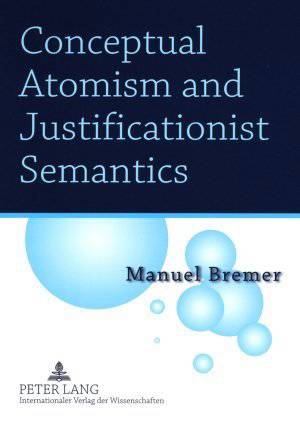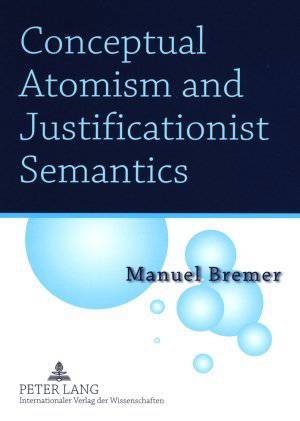
- Afhalen na 1 uur in een winkel met voorraad
- Gratis thuislevering in België vanaf € 30
- Ruim aanbod met 7 miljoen producten
- Afhalen na 1 uur in een winkel met voorraad
- Gratis thuislevering in België vanaf € 30
- Ruim aanbod met 7 miljoen producten
Zoeken
€ 46,95
+ 93 punten
Omschrijving
Conceptual atomism claims that most concepts cannot be decomposed into features, so that the conjunction of the features is equivalent to the concept in question. Conceptual atomism of this type is incompatible with many other semantic approaches. One of these approaches is justificationist semantics. This book assumes conceptual atomism. Justificationist semantics in its pure form, therefore, has to be wrong. Nevertheless, its epistemological approach to questions of evaluations and semantic rules could still stand. The main question is how conceptual atomism can be combined with some justificationist ideas. This new synthesis centres on the representational theory of mind and 'internalist' semantics, but ties these to ideas which stress the epistemic commitments that accompany successful assertions.
Specificaties
Betrokkenen
- Auteur(s):
- Uitgeverij:
Inhoud
- Aantal bladzijden:
- 144
- Taal:
- Engels
Eigenschappen
- Productcode (EAN):
- 9783631578766
- Verschijningsdatum:
- 15/05/2008
- Uitvoering:
- Paperback
- Formaat:
- Trade paperback (VS)
- Afmetingen:
- 148 mm x 210 mm
- Gewicht:
- 199 g

Alleen bij Standaard Boekhandel
+ 93 punten op je klantenkaart van Standaard Boekhandel
Beoordelingen
We publiceren alleen reviews die voldoen aan de voorwaarden voor reviews. Bekijk onze voorwaarden voor reviews.








